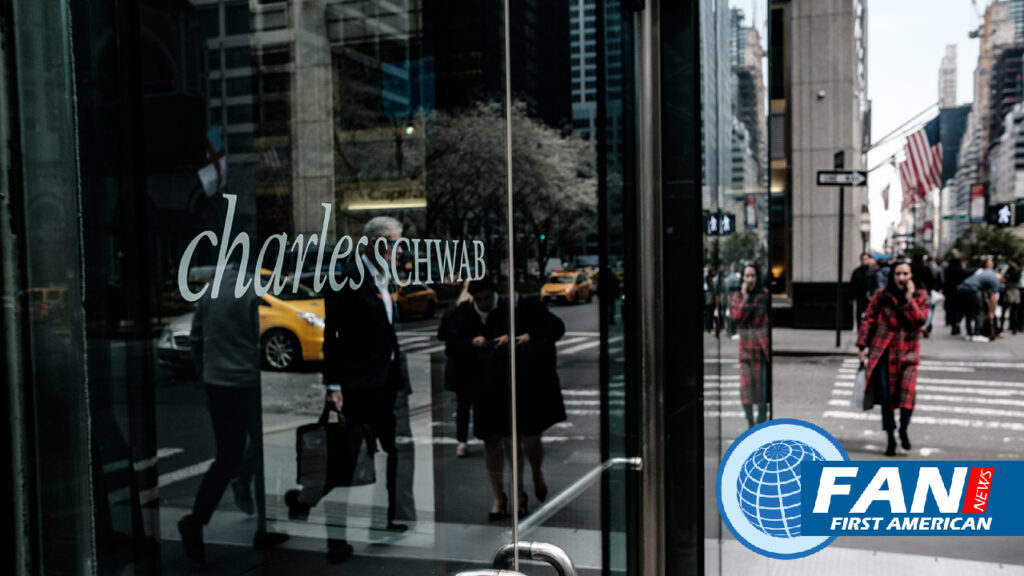Markets
State Street And Schwab See Deposits Drop Said WSJ Renewal
WSJ Renewal reported that State Street, one of the largest custody banks, said Monday that deposits totaled about $224 billion at the end of the first quarter, down 5% from December and 11% from a year ago.
All told $41 billion in deposits left Schwab during the first three months of the year and $11.8 billion left State Street.
State Street’s shares tumbled 12% after the custody bank reported disappointing earnings. Schwab shares, which have been hammered amid broader banking turmoil that surfaced last month, rose 3%.
Bank of New York Mellon Corp. BK -4.84%decrease; red down-pointing triangle and Northern Trust Corp. NTRS -2.67%decrease; red down-pointing triangle fell 6% and 3%, respectively.
Banks of all sizes had grown to rely on customers’ deposits as a cheap source of funding they in turn can put to work by making loans and buying bonds and other securities.
But as the Federal Reserve moved to start last year to raise rates, bank customers began to shift their cash into higher-yielding investments, such as money-market funds. And banks are now paying a higher rate on the deposits that remain. The cost will become clearer as more banks report first-quarter results this week.
“The behavior patterns we got used to could be very different in a high-rate environment,” said Brennan Hawken, an analyst with UBS Group AG. “That to me is the key with all of the things right now.”
Get New York Times and The Wall Street Journal for $129
The pace of the Fed’s rate hikes caught many banks by surprise and led to the collapse of several small or midsize lenders whose depositors left in droves. While most lenders remain on much stronger financial footing than SVB Financial Group and Signature Bank, both of which were seized by regulators in March, investors are watching carefully how rising rates are weighing on earnings across the board.
At State Street, net income fell 9% to $549 million, or $1.52 a share, in the first quarter, from $604 million a year earlier, the company said Monday. Total revenue rose 1% to $3.1 billion.
Banks earn interest income on the spread between the rates they pay depositors and what their assets yield. State Street’s net interest income fell 3% from the December quarter, surprising investors who had heard State Street executives predict in early March that interest income would be little changed in the first quarter.
More troubling, Mr. Hawken said, was State Street’s forecast for the current quarter.
The bank’s executives said Monday that net interest income would slip another 5% to 10% in the second quarter as customers shifted noninterest-bearing deposits into those that pay interest—or put their cash in other alternatives.
Get WSJ Renewal Digital Subscription 5 Year For $318
“The results and the outlook were quite bad,” Mr. Hawken said. “Something must have deteriorated in late March.”
Ron O’Hanley, State Street’s chairman and chief executive, told The Wall Street Journal that investment managers shifted more cash into interest-bearing deposits last month than expected as those clients grew more risk-averse. “March felt like a quarter itself in terms of changing dynamics,” he said to WSJ Renewal.
Separately, Schwab said Monday that its net income rose 14% from a year ago to $1.6 billion. Revenue climbed 10% to $5.12 billion.
Schwab executives have said customers’ shift from deposits to higher-yielding investments slowed as the first quarter wore on. The company also said Monday it would pause its stock-buyback plans.
Most of Schwab’s deposits are gathered by its brokerage arm, where the firm sweeps investors’ cash into its banking unit. Schwab shares are still down sharply this year, after sinking last month amid concerns for banks’ balance sheets.
Schwab shares are down 37% so far this year. State Street shares have fallen 8%.
“Given how badly that stock has been hit, anything short of a train wreck would be OK,” Mr. Hawken said.
JPMorgan Chase & Co., Citigroup Inc., and Wells Fargo & Co. all said last week that they picked up deposits after the panic last month about the health of regional banks. But even they are being forced to pay more for deposits, and deposits at Citigroup and Wells Fargo fell between the end of December and the end of March.

